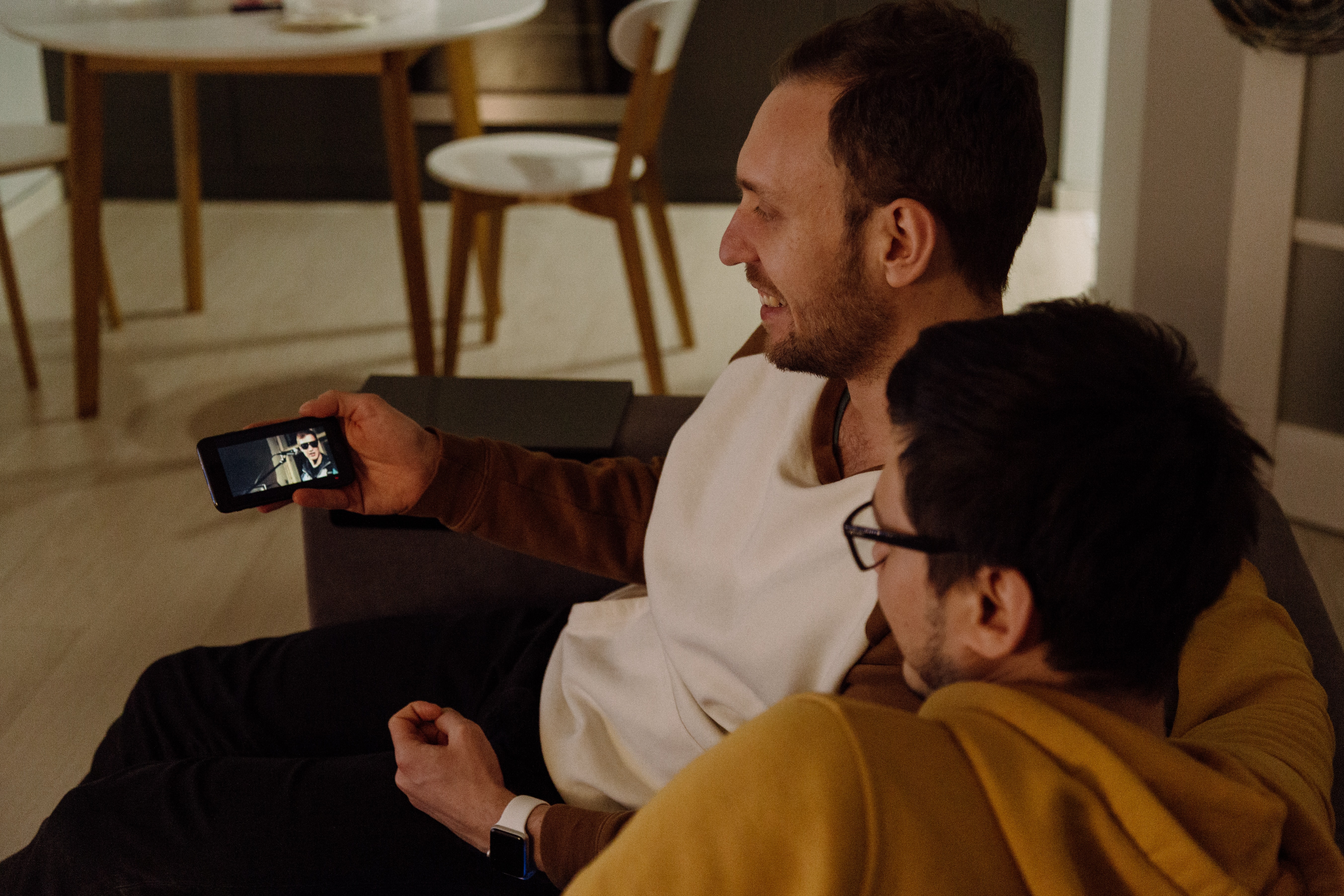Bzzzz Bzzzz. Your partner’s phone is buzzing on the couch next to you while they went to the kitchen to grab a snack. You stare at the screen as it lights up with multiple messages from someone named Samantha. You look over your shoulder to see if they are coming back and grab the phone to open their messages. You see that someone is texting them about their math homework and you feel so much relief. But while you were reading, your partner comes back into the room and catches you in the act. This scenario is a common one with couples and is an example of why having boundaries, not just physical but digital boundaries, AND respecting those boundaries is important.
Boundaries tend to get a bad rap; there is this stigma that boundaries are restrictive or a punishment. But that isn’t true. Personal boundaries are the limits you set for yourself in relationships. And by extension, your digital boundaries are limits you have in place related to your technology (phone/ laptop/apps/email, etc). Digital boundaries may change as a relationship does but they typically relate to how we want to be treated in a virtual space (are you okay with being tagged in photos online?) as well as how we want others to treat our technology.
Related: How often should you communicate digitally?
How to know it’s time to set a boundary

Everyone deserves to have boundaries that are respected in their relationships. The problem is knowing what boundaries to set and when can be difficult for most people. Here are some of the signs to look out for:
- You get knots in your stomach whenever they “cross the line” and check your phone without permission.
- You start to feel resentful of them when they comment on a post you shared.
- You feel disrespected by something they said or have done.
- You feel their expectations of you are unreasonable or inappropriate.
- You feel uncomfortable, or as though you are being pushed to do things you wouldn’t normally do, like share your location, passcodes, etc.
Related: How to Spot the Signs of Abusive Texts & Get Help
Knowing when to set a boundary comes down to trusting your gut and honoring that gut feeling you have. In general, if someone is making you feel uncomfortable or unsafe, it is time to think about setting a boundary with that person.
Let’s practice setting digital boundaries

Let’s use the example that your partner wants the passcode to all your social media accounts. If you don’t want to share the passwords you have every right to say no without feeling guilty. Try saying this:
- “No, I’d rather not share my passwords with you.”
- “No, I’d rather not share my passwords with you. I hope that you can respect and trust that I deserve to have privacy.”
When it comes to your boundaries “no” is a complete sentence. In a healthy relationship, your partner will understand that and respect your need for privacy.
How to set digital boundaries
Setting a boundary with a partner or a friend can be really challenging. That is exactly why we should practice them.
Let’s say your partner wants to approve all your posts on social media before you post them. You’re not okay with this and want to set a boundary. What’s the first step?
Step 1: Identify the problem
Check-in with yourself to identify the problem. You might say, “The problem with my partner wanting to approve my posts is that it feels controlling, and the worries me. It’s my social media and I should be able to post whatever I want.”
Step 2: Trust your gut
My gut is telling me that this behavior is not normal and I am not okay with getting my partner’s approval before I post something unless it involves them.
Step 3: Define the boundary
I am going to tell my partner they cannot approve my posts before I post them because I am allowed to post whatever I want on my social media accounts.
Step 4: Start a conversation using “I feel” statements
Start a conversation with “I feel” statements so they are aware of the impact of their behavior. Here’s an example, “I feel frustrated when you tell me I need your approval before I post something on social media. They are my accounts, therefore a reflection of who I am. I want them to reflect me and if you need to approve the posts my accounts might start reflecting you.”
Step 5: Define the consequences
Stay calm and respectful when sharing the consequences of breaking your boundary. Here’s an example, ‘If you continue giving me a hard time about what I post on social media and pushing me to get your approval, [insert appropriate consequence].”
Stick to the consequence if they cross the line

If someone is not respecting your boundary or they continuously cross the line, it might be time to evaluate whether the relationship is serving you. After all, if someone is willing to break digital boundaries, what happens when you try to set physical or emotional boundaries too?
As tempting as it is to pick up your partner’s phone while it’s buzzing and they’re in the other room, respecting digital boundaries is important to having a healthy relationship. And if you don’t want your partner going through your phone, share that boundary with them. Let them know how you feel when they look through your phone, ask them to not do it, and define the consequences. With these steps, you will be able to communicate with your partner what your needs are so that your relationship can be as healthy as it can be.
Browse by Category


Don’t Be on the Naughty List: Spotting Unhealthy Relationship Signs This Holiday Season
The holidays are meant for joy, connection, and celebration—whether it’s Christmas, Hanukkah, Kwanzaa, or cozy winter vibes. But if someone…
How to Have Healthy Holiday Conversations with Family (and Prep Your Partner)
The holidays are a time for family, good food, and—let's…
Finding Strength in Our Stories: Domestic Violence Awareness Month
⚠️ Trigger Warning: This blog includes content and language related…
Understanding Domestic Violence Awareness Month (DVAM)
October is almost here, and that means it’s time to…
4 Students Share How They Helped a Friend in an Unhealthy Relationship
Watching a friend struggle in an unhealthy or abusive relationship…

















